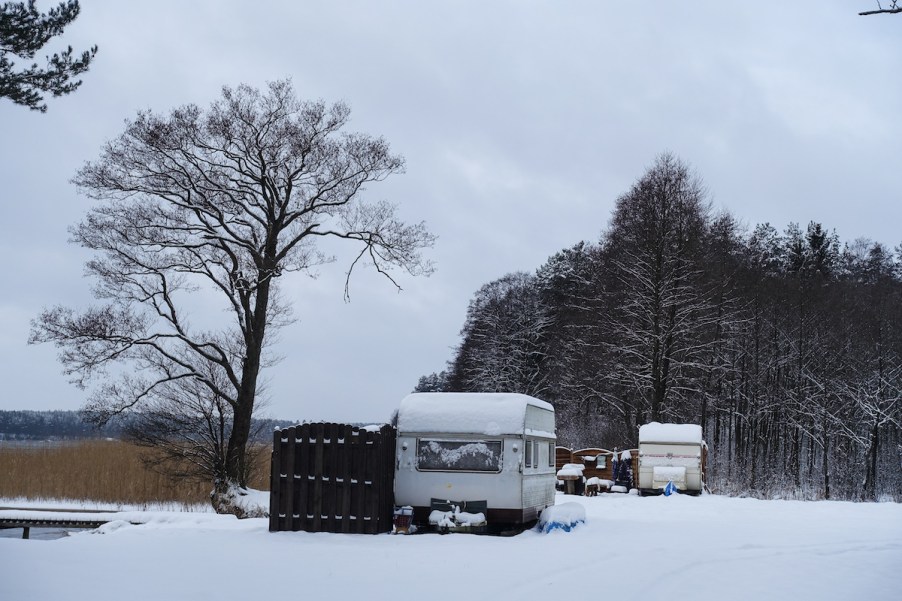
2 Disadvantages of Having an Electric Heater in Your RV
More and more people have been adventuring in their RVs these days. Families load up for summer vacations, retirees travel to visit the grandkids cross-country, or they just want to go on a great adventure. With all their unique designs and amenities, RV models make it easy for anyone to hit the road.
Winter RV travel is even seeing a boost in popularity. Of course, you’ll need to plan ahead with a heat source to keep warm. But before you load up those electric heaters into your RV, it’s important to know all sides. There are two primary disadvantages to using electric heaters as a primary method of heating an RV.
RV’ing in the winter is a favorite pastime

Don’t presume that just because it’s winter, it’s not a good time to hit the road in your RV. In fact, winter RV trips are becoming more popular than ever this season, as Nerd Wallet suggests. Hitting the open highway with your family in your camper is still a more attractive way to vacation, especially if you’re looking to avoid inflated flights and hotel prices.
But it’s also the holiday season. And taking your RV to visit relatives and friends afar is a great way to get together without sleeping on a couch or overspending on hotel accommodations.
Before you head out, you’ll want to ensure you have all your RV supplies and resources. And because it’s wintertime, you’ll also need an ample heat supply.
Electric heaters are popular choices and offer plenty of advantages for RV enthusiasts. But with every list of pros, there is also a list of cons to consider. According to Drivin’ & Vibin’, there are two distinct disadvantages to using electric heaters as your primary source of RV heat.
1. Increased electricity usage with an electric heater in an RV
Depending on where you park your RV and hook up, you might not have ample access to electricity. Electric heaters can provide much-needed warmth, but not without extreme electricity usage. Electric heaters need a relatively large and steadily reliable supply of amperage to be effective.
Anywhere you find yourself “boondocking,” you’ll have to draw down your battery power. And even at some campsites, RV travelers are responsible for paying their electric bills, which could get pretty lofty if you use electric heaters during the winter.
2. Increased risk of fire hazards with an electric heater in your RV
Despite your best efforts to be safe, electric heaters present an increased fire risk. Living in an RV means cramped spaces. There’s also added clutter in those cramped spaces. An electric heater can easily become a hazard should it come in contact with materials that can catch fire. Imagine tipping over a heater accidentally by tripping people or companion pets. There is added risk of overloading the electrical system, too. Be mindful whenever using an electric heater and take the necessary precautions to ensure it’s safely set up for proper use.
If you’re looking for heating alternatives to electric heaters, there are a few tips the expert RV enthusiasts suggest. For starters, improve your RV’s insulation before hitting the road this winter. Pack extra blankets and bedding to keep you warm overnight. And in a pinch, you can always use your vehicle’s heater to help take the wintery chill out of the air.
So, if you’re preparing to do a little winter RV travel, keep these tips in mind about electric heaters. They’re great for generating heat in small spaces, but there are these two primary disadvantages worth noting. Be safe and be diligent about taking all the recommended safety precautions with any heating device you use.





